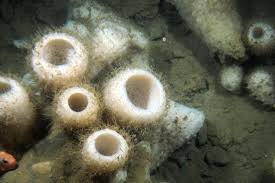If that sounds absurd or slanderous, consider what Anna Grandison says for the EMBL Press Office Nov 5, 2021: “More than a gut reaction: What sponges can tell us about the evolution of the brain.” She is speaking of animal brains, including the human brain. EMBL is the European Molecular Biology Lab, the “flagship laboratory for the life sciences – an intergovernmental organisation with more than 80 independent research groups covering the spectrum of molecular biology.”
We can presume that Ms Grandison is not speaking out of line with the majority of molecular biologists in Europe, where Darwinian evolution is still treated as the unifying theme of biology, when she says:
As you read these lines the highly sophisticated biological ‘machine’ that is your brain is at work. The human brain is made up of approximately 86 billion neurons and controls not only our bodily functions from vision to movement but also provides consciousness and understanding.
This is in agreement with creationists, so far. But then:
Despite its central importance the brain’s origins have not
yet been uncovered. The first animal brains appeared hundreds of millions of years ago. Today, only the most primitive animal species, such as aquatic sponges, lack brains. Paradoxically, these species may hold the key to unlock the mystery of how neurons and brains first evolved.
She goes on to say that precursors of neurons may have existed in primitive sponges. These precursors are synaptic genes, the first hints of communication between cells that form the basis of neurons. The genes are active in “digestive chambers” (i.e., stomachs) of the sponges. For the EMBL scientists, the light of human mental acuity came on!
The scientists captured three-dimensional snapshots of cells crawling throughout the digestive chamber to clear out bacterial invaders and sending out long arms that enwrap the feeding apparatus of specific digestive cells. This behaviour creates an interface for targeted cell–cell communication, as it also happens across synapses between neuronal cells in our brains.
“Our results point to the cells regulating feeding and controlling the microbial environment as possible evolutionary precursors for the first animal brains,” Dr Musser said. “Truly food for thought!”
Thought for food, too: if thoughts are evolutionary products of
synaptic genes in sponge digestive chambers, then the Darwinians are out
to lunch." CEH

